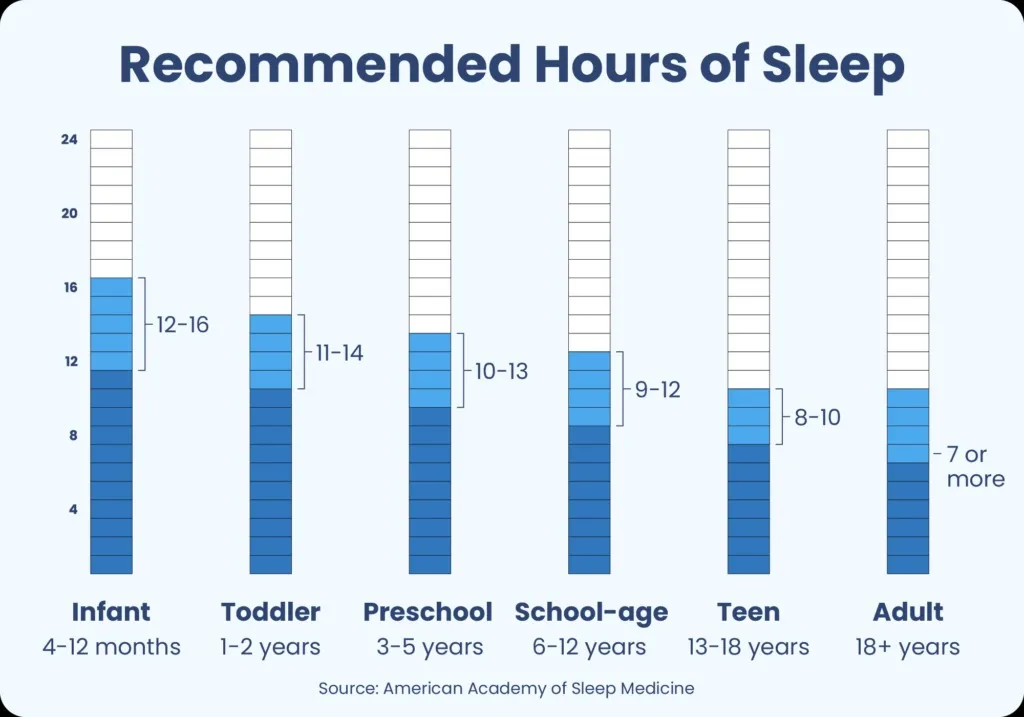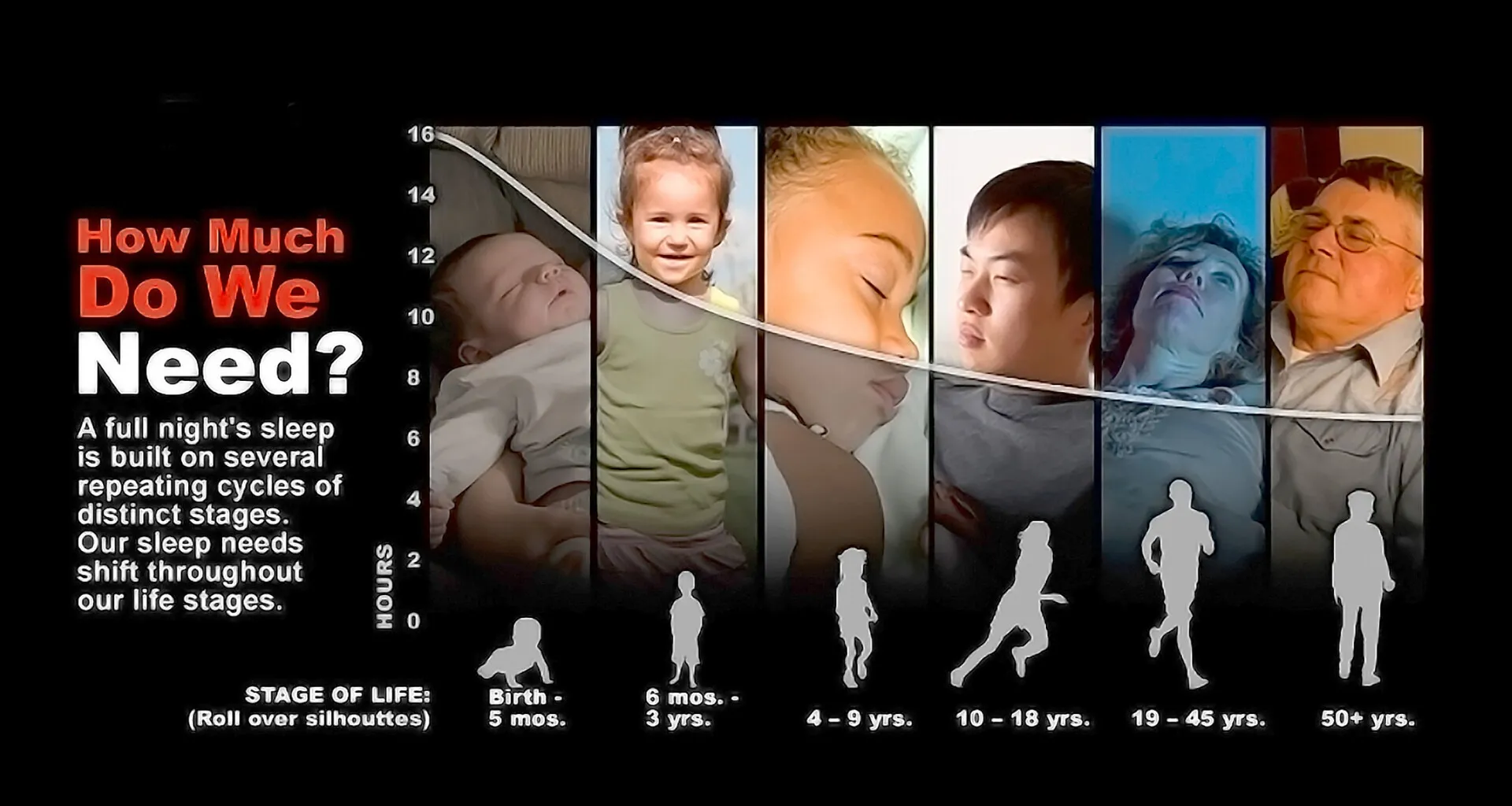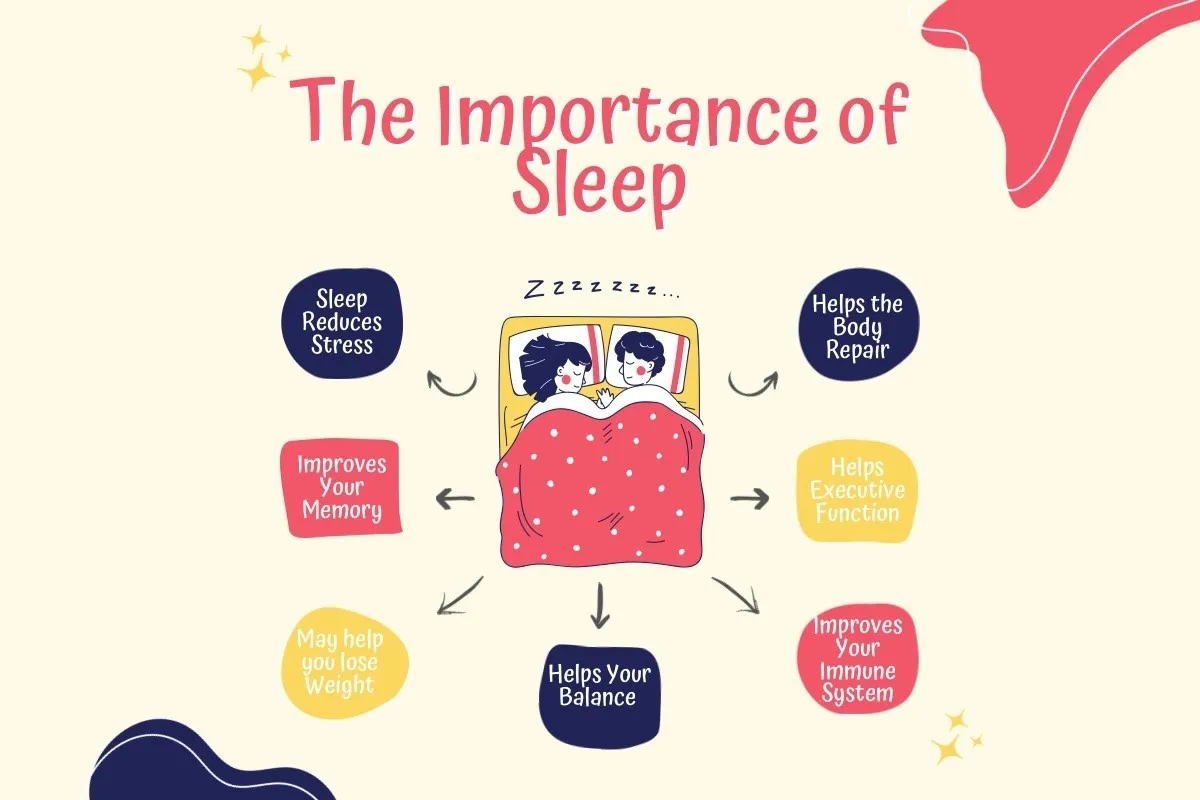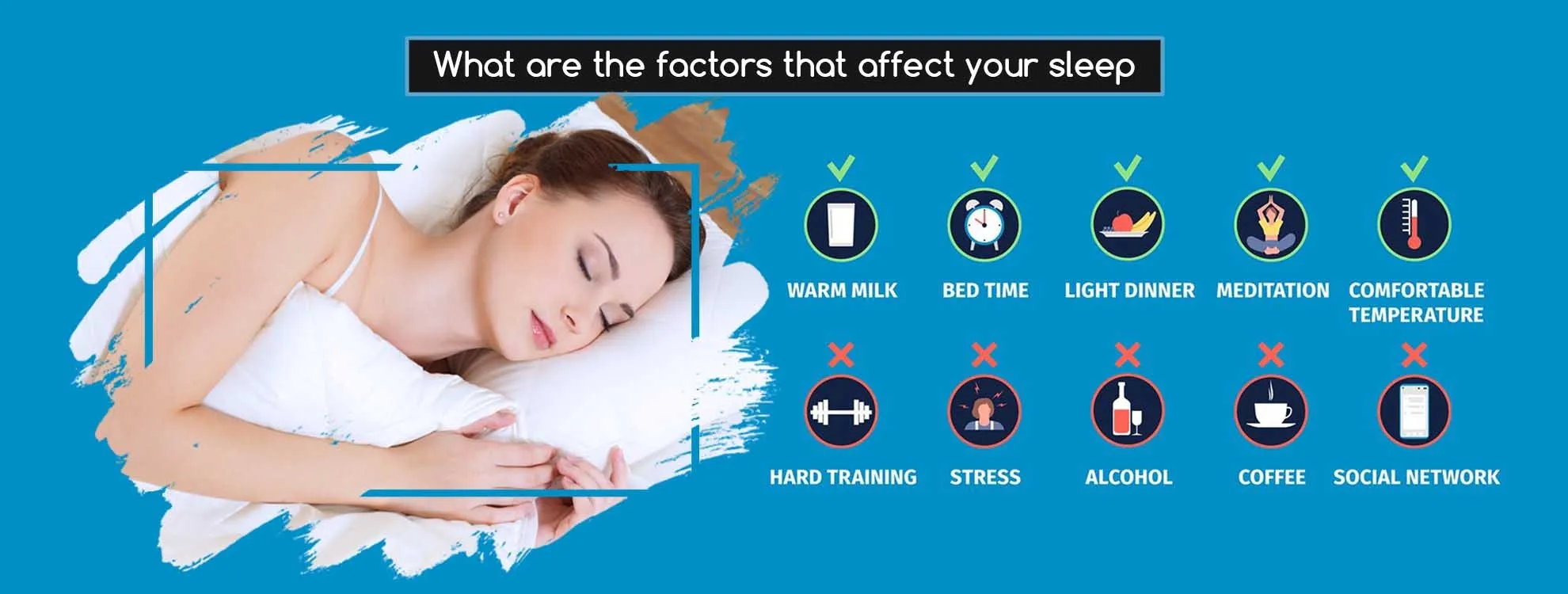The Ultimate Sleep Duration Guide: How Much Sleep Do You Really Need?

Getting the right amount of sleep is one of the most important things you can do for your health, yet about one-third of U.S. adults routinely don’t get enough sleep. With so much conflicting information out there, it’s easy to feel confused about exactly how many hours you should be sleeping each night.
This comprehensive guide breaks down the latest scientific recommendations from leading sleep organizations, including the National Sleep Foundation and the American Academy of Sleep Medicine, to help you understand your optimal sleep duration and improve your overall health.

Quick Answer: Adult Sleep Recommendations
For most healthy adults, 7 to 9 hours of sleep per night is recommended according to the National Sleep Foundation’s evidence-based guidelines. However, sleep needs vary significantly by age, and individual requirements can differ within recommended ranges.
Sleep Duration by Age: The Complete Breakdown
The National Sleep Foundation’s multidisciplinary expert panel has established comprehensive sleep duration recommendations across the entire lifespan. Here’s what the research shows:
Infants and Toddlers
- Newborns (0-3 months): 14-17 hours per day
- Infants (4-11 months): 12-15 hours per day
- Toddlers (1-2 years): 11-14 hours per day
Children and Adolescents
- Preschoolers (3-5 years): 10-13 hours per day
- School-aged children (6-13 years): 9-11 hours per day
- Teenagers (14-17 years): 8-10 hours per day
Adults
- Young adults (18-25 years): 7-9 hours per day
- Adults (26-64 years): 7-9 hours per day
- Older adults (65+ years): 7-8 hours per day

The Science Behind Sleep Duration Recommendations
These guidelines aren’t arbitrary numbers—they’re based on extensive scientific research. The National Sleep Foundation convened an 18-member multidisciplinary expert panel, representing 12 stakeholder organizations, to evaluate scientific literature concerning sleep duration recommendations.
The panel used the RAND/UCLA Appropriateness Method to analyze hundreds of studies examining the relationship between sleep duration and various health outcomes, including:
- Cardiovascular health
- Mental health and cognitive performance
- Immune function
- Metabolic health
- Safety and accident risk
Why Sleep Duration Matters for Your Health
Getting the right amount of sleep isn’t just about feeling rested—it’s fundamental to your overall health and wellbeing. Research consistently shows that both too little and too much sleep can have serious health consequences.

Benefits of Adequate Sleep
When you consistently get the recommended amount of sleep, you can expect:
- Enhanced cognitive function: Improved attention, behavior, learning, memory, and emotional regulation
- Better physical health: Reduced risk of type 2 diabetes, heart disease, and high blood pressure
- Stronger immune system: Get sick less often
- Improved mood: Reduce stress and improve your mood
- Better weight management: Stay at a healthy weight
Risks of Insufficient Sleep
The consequences of not getting enough sleep are far-reaching. Regularly sleeping fewer than the recommended hours is associated with attention, behavior, and learning problems. Insufficient sleep also increases the risk of accidents, injuries, hypertension, obesity, diabetes, and depression.
For teenagers specifically, insufficient sleep is associated with increased risk of self-harm, suicidal thoughts, and suicide attempts.
Understanding Sleep Quality vs. Quantity
While duration is crucial, research is increasingly finding that poor quality sleep can be just as harmful as a reduced quantity of sleep. Quality sleep means:
- Falling asleep within 15-20 minutes
- Sleeping through the night with minimal awakenings
- Feeling refreshed and alert the next day
- Experiencing all stages of sleep, including REM sleep
Quality sleep means you are getting uninterrupted and refreshing sleep. Getting quality sleep is not just about how many hours you sleep, but how well you sleep.

Current Sleep Statistics: The State of American Sleep
The data on American sleep habits is concerning:
- The percentage of adults not getting enough sleep varies by state. In 2022, it ranged from 30% of adults in Vermont to 46% adults in Hawaii
- Sleep disorders affect about 70 million Americans
- 1 in 3 U.S. adults regularly don’t get enough sleep
- In 2020–2021, insufficient sleep among children ranged from 25% in Minnesota to 50% in Louisiana
Individual Variations: Why One Size Doesn’t Fit All
While the recommended ranges provide excellent guidelines, it’s important to understand that experts acknowledge that the ideal amount of sleep can vary from person to person. Factors that can influence your individual sleep needs include:
- Genetics: Some people are naturally short or long sleepers
- Age: Sleep needs change throughout your lifetime
- Health status: Illness or medical conditions may increase sleep requirements
- Lifestyle factors: Physical activity levels, stress, and work schedules
- Sleep debt: Previous nights of insufficient sleep may require additional recovery time

How to Determine Your Optimal Sleep Duration
To find your personal sweet spot:
Start with the recommended range for your age group
Pay attention to how you feel after different amounts of sleep
Look for these signs of adequate sleep:
- Waking up feeling refreshed without an alarm
- Maintaining alertness throughout the day
- Good mood and emotional regulation
- Consistent energy levels
Track your sleep for 2-3 weeks using a sleep diary or app
Avoid relying on weekend “catch-up” sleep as a regular strategy
Common Sleep Duration Myths Debunked
Myth: “I can function fine on 4-5 hours of sleep”
Reality: While some people may feel they function well on minimal sleep, research shows that cognitive performance, immune function, and long-term health all suffer with insufficient sleep.
Myth: “More sleep is always better”
Reality: Getting too much sleep can be just as bad for your health as being chronically sleep-deprived. Regularly getting too much sleep can increase your risk of getting diabetes, heart disease, depression, obesity, and even strokes.
Myth: “Older adults need less sleep”
Reality: While sleep patterns change with age, older adults still need substantial sleep—7-8 hours according to current guidelines.
When to Consult a Healthcare Provider
You should speak with a healthcare professional if you:
- Consistently sleep within the recommended range but still feel tired
- Have difficulty falling asleep or staying asleep
- Experience loud snoring or breathing interruptions during sleep
- Feel excessively sleepy during the day
- Have been told you stop breathing during sleep
Talk to your healthcare provider if you have problems sleeping or if you suspect you might have a sleep disorder.
The Bottom Line: Prioritize Your Sleep Duration
Getting adequate sleep isn’t a luxury—it’s a biological necessity. Sleep is a biological necessity, and insufficient sleep and untreated sleep disorders are detrimental for health, well-being, and public safety.
Start by aiming for the recommended 7-9 hours if you’re an adult, and adjust based on how you feel and function. Remember that consistency is key—try to maintain the same sleep schedule even on weekends.
Your sleep duration is one of the most powerful tools you have for optimizing your health, cognitive performance, and overall quality of life. Make it a priority, and your body and mind will thank you.

This guide is based on the latest scientific research from the National Sleep Foundation, American Academy of Sleep Medicine, and Centers for Disease Control and Prevention. For personalized advice, consult with a healthcare provider or sleep specialist.
